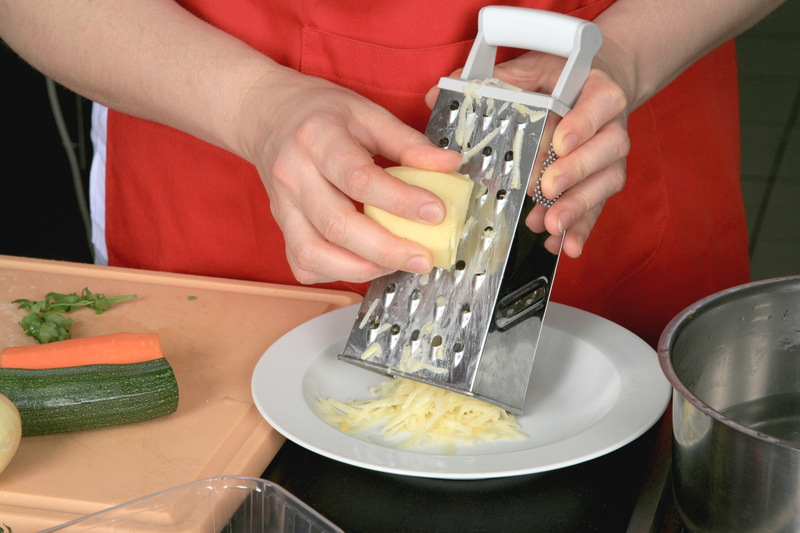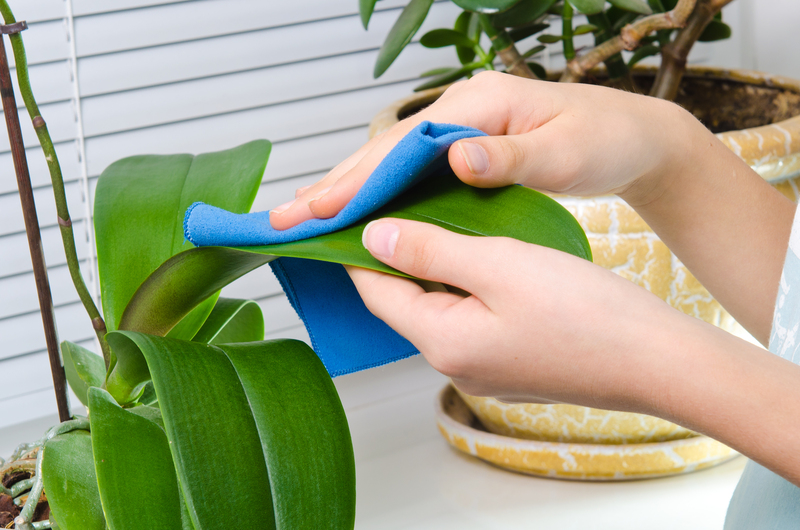Jewellery Cleaning Secrets That Professionals Use
Posted on 06/09/2025
Jewellery Cleaning Secrets That Professionals Use
Have you ever noticed how professional jewellers make even the oldest pieces of jewellery look brand new? Their secret is all about using the right techniques, materials, and a consistent care routine. In this comprehensive guide, we will unveil the top jewellery cleaning secrets that professionals use to keep every piece sparkling. Whether you have gold, silver, diamonds, or gemstones, you'll discover the best methods to clean, care for, and preserve your treasured items at home.

Why Proper Jewellery Cleaning Matters
Cleaning jewellery isn't just about making it shine; it's essential for preserving value and preventing damage. Dirt, oils, lotions, and pollution can dull precious metals and gems, while neglecting regular care can lead to scratches and even permanent damage. Professional jewellers understand that with a few smart strategies, you can extend the life and lustre of your most loved pieces.
Benefits of Professional-Grade Jewellery Cleaning
- Preserves shine and beauty
- Prevents tarnish and dullness
- Protects settings from buildup that can loosen stones
- Increases lifespan of delicate items
- Maintains market value and sentimental appeal
The Most Effective Jewellery Cleaning Secrets Revealed
1. Know Your Materials - Different Jewellery Requires Different Care
One size does not fit all in the world of jewellery cleaning. Professionals first identify the type of metal and gemstone before starting any process. This helps them choose the safest techniques and avoid accidental damage:
- Gold and Platinum: Both precious metals are durable but can still develop scratches or tarnish if mishandled.
- Silver: Prone to tarnishing and requires gentle cleaning to maintain its brilliance.
- Diamonds: Though hard, they attract grease and grime easily.
- Gemstones: Porous gems like opal, pearl, jade, and turquoise need special care to avoid discolouration or cracking.
2. The Professional's Double-Soak Method
Professional jewellers often use a double-soak method for stubborn dirt and oils:
- First Soak: Immerse jewellery in a bowl of warm water mixed with gentle soap (never harsh detergents). Use a soft brush to dislodge surface grime.
- Second Soak: After scrubbing, soak again in clean lukewarm water to rinse off any residues. This ensures a thorough cleanse without any film or streaks.
3. The Magic of Microfiber & Ultrasonic Cleaners
For an immaculate finish, professionals rely on two tools:
- Microfiber Cloth: These ultra-soft cloths trap dust and polish without scratching delicate surfaces.
- Ultrasonic Cleaners: These machines create microscopic bubbles that gently remove grime in hard-to-reach areas. It's safe for many types of metals and stones, but must be avoided with pearls, opals, and soft gems.
Always check with a jewellery expert before using these devices on vintage or fragile pieces.
Insider Jewellery Cleaning Tips for Gold, Silver, and Gemstones
Gold Jewellery Cleaning Secrets
- Ammonia Solution: Professionals use a solution of one part ammonia to six parts water for occasional deep cleaning (never on a regular basis).
- Toothpick Detailing: For filigree or fine patterns, a wooden toothpick gently removes trapped dirt without scratching gold surfaces.
- Rinse Thoroughly: Always rinse with clean water and dry with a microfiber cloth to prevent water spots or soap residue.
Silver Jewellery Cleaning Secrets
- Baking Soda Paste: Mix baking soda with a few drops of water to form a paste. Gently rub onto tarnished silver using a soft cloth, then rinse and buff dry.
- Aluminium Foil Bath: Place jewellery on crumpled aluminium foil in a ceramic bowl. Add hot water, a tablespoon of baking soda, and a touch of salt. This causes a chemical reaction that lifts tarnish in minutes.
- Anti-Tarnish Strips: Store silver with anti-tarnish strips to slow down future oxidisation.
Diamond Jewellery Cleaning Tips
- Mild Dish Soap: Soak diamonds in warm water with a drop of dish soap. Scrub gently with a soft, clean toothbrush--paying special attention to the back of the setting where dirt collects.
- Avoid Touching Stones: Always handle rings by the band, not the stone, to avoid transferring oils that cause a dull appearance.
- Professional Inspection: Schedule regular inspections for loose prongs or settings--many jewellers offer complimentary cleaning and checks.
Pearl and Soft Gemstone Cleaning Techniques
- Never Soak: Pearls and soft gems should never be soaked. Wipe gently with a soft, damp cloth.
- Clean After Wear: Pearls can absorb chemicals from cosmetics, perfume, and perspiration. Wipe after every wear to preserve their lustre.
- Gentle Storage: Store pearls in a soft pouch, never touching other jewellery that may scratch their delicate surface.
Advanced Jewellery Cleaning Secrets: What the Pros Never Tell You
Use Of Professional-Grade Polishes And Solutions
- Polishing Cloths: Specially impregnated cloths designed for gold or silver provide an instant sheen without scratching.
- Commercial Solutions: Look for formulas tailored to your specific metal or gem. Avoid all-purpose cleaners, as these can do more harm than good.
- Spray Jewellers' Cleaner: Quick sprays brighten up diamonds and platinum without messy soaking or residue.
Mastering the "Inspection Routine"
Professional jewellers inspect every piece before and after cleaning. Why?
- To check for loose stones or damaged prongs
- To identify worn clasps or weak links
- To spot any discolouration or early signs of tarnish
Regular inspection avoids costly repairs and keeps your jewellery safe to wear.
Ultra-Sonic Cleaning with a Twist
Some professionals preheat the cleaning solution in their ultrasonic machines. Warm solutions are more effective at breaking down oils and dirt. However, always carefully monitor the temperature--never use hot water on heat-sensitive gems!
DIY Jewellery Cleaning Tricks From the Pros
Gentle Cleaning For Everyday Wear Jewellery
For pieces you wear every day--like wedding rings, stud earrings, or a favourite chain--use these easy techniques:
- Soak in a mix of warm water and mild dishwashing liquid for 15-20 minutes.
- Brush gently with a baby toothbrush (super soft bristles only).
- Rinse thoroughly and dry with a soft cotton or microfiber cloth.
Homemade Jewellery Cleaning Solutions
When in doubt, try these home-friendly solutions:
- Baking Soda & Vinegar: Cover the jewellery with baking soda, then pour over a small amount of vinegar. Rinse thoroughly after bubbling stops.
- Unscented Baby Shampoo: Perfect for delicate pieces. Mix a few drops with water, wipe gently, and then rinse.
- Soft Pencil Eraser: Gently buff away spots or tarnish from gold and silver. Always use a fresh, clean eraser.
Caring for Costume and Fashion Jewellery
Costume jewellery is sensitive to moisture and chemicals. Professionals recommend:
- No soaking: Always clean with a barely damp cloth--never immerse in water. Dry thoroughly.
- Seal with Clear Nail Polish: A thin layer on the inner band prevents tarnish and protects sensitive skin.
- Avoid Perfume & Lotions: Always put fashion jewellery on last, and wipe down after wearing.
How to Store Jewellery for Maximum Shine
Cleaning is only part of the professional jewellery care equation. Correct storage practices preserve the results:
- Store separately: Box or pouch each piece to prevent scratching and tangling.
- Keep away from moisture: Use silica packets or anti-tarnish strips in your jewellery box.
- Hang necklaces: Avoid knots and kinks by hanging chains or using a jewellery tree.
Common Jewellery Cleaning Mistakes To Avoid
- Never use harsh chemicals: Bleach, acetone, and chlorine can permanently damage metals and gems.
- Don't use abrasive cleaners: Baking soda paste is excellent for silver but shouldn't be rubbed on soft stones or gold-plated items.
- Never expose to heat: Hot water and steam clean only certain hard gemstones; most pearls and soft stones will crack or lose lustre.
- Don't wear jewellery in the shower or pool: Soap, shampoo, and pool chemicals can speed up tarnish and loosen stones.

When to Visit a Professional Jeweller
Routine home care is essential, but nothing can substitute the expert eye and equipment of a professional. Schedule a professional jewellery cleaning and inspection if:
- Your jewellery loses shine: and at-home cleaning isn't enough.
- You notice loose stones or bent clasps: Only professionals should attempt repairs.
- Antique or heirloom jewellery: Should be regularly checked to maintain both value and condition.
Conclusion: Make Your Jewellery Shine Like a Pro
By applying these jewellery cleaning secrets that professionals use, you can keep your precious items looking as good as new. Always tailor your cleaning methods to your specific jewellery type, and invest a little time into regular care and proper storage. Remember: sometimes, less is more. A gentle touch, the right cleaning solutions, and periodic professional assistance are all it takes to maintain your sparkle for a lifetime.
If you found these jewellery cleaning tips helpful, share this article with friends and family--or bookmark for reference the next time your diamonds, gold, silver, or pearls need a professional-grade shine!




